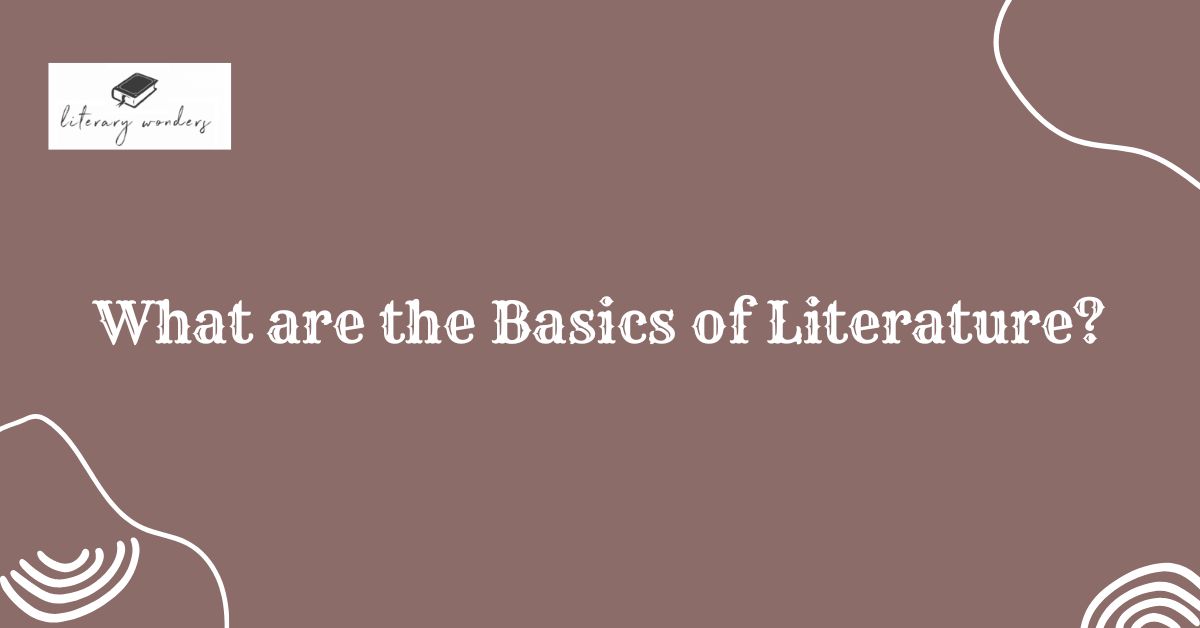Definition of Literature
By definition, the term literature refers to the body of written works. Traditionally, the term has been used for imaginative and unparalleled writing pieces determined by the objectives of their writers. Literature may be categorized depending on a range of categories including origin, historical background, genre, language, and types. However, its exact definition tends to be circular. The Oxford Learner’s Dictionaries sees literature as, “pieces of writing that are valued as works of art, especially novels, plays, and poems.”
Initial Traces
Literature is as old as man. It is said to have its initial roots in Latin, where it emerged in the form of oral practices. People used to share their stories with others, intending to spread their values and folktales to the larger communities. Gradually, people felt the need to preserve and transmit their cultures and practices for the upcoming generations. Therefore, ancient oral literature was replaced with writing practices and many great authors contributed to storing the old English literature.
The Old English Literature or Anglo-Saxon is said to have the initial form of English writings. Many of the writing pieces are pagan, in particular, “Beowulf” and “Widsith”, “The Dream of the Rood”, “The Battle of Maldon”, and many other spectacular writings. Homer’s “Iliad” and “Odyssey” date to the 8th century BC, and mark the beginning of Classical Antiquity. The historical development of literature cannot be seen at an even pace across the world. Rather, it is spread through the globe, and due to this expansion, we can classify various types of literature such as; Greek Literature, Latin Literature, Hebrew Literature, Arabic Literature, Persian Literature, and so on.
Literary Theory
The term literary theory refers to the systematic study of the nature, elements, and different methods of literary analysis. The word theory itself is an umbrella term for the scholars who intend to approach the same text, implying various philosophical, critical, and intellectual lenses. Although the practice of literary theory emerged properly in the 20th century, yet its initial traces are present in ancient Greece, Rome, India, and medieval Iraq.
During the 18th and 19th centuries, aesthetic theories left a significant influence on literature. However, these theories started to lose their attraction when other schools of the literary theory emerged in the later centuries and put it into a unified domain. Some of the commonly identified schools are Cognitive literary theory, Darwinian literary studies, Formalism, Marxism, feminism, Post colonialism, and modernism.
Literary Genres
Although every form of writing is classified under the umbrella of literature, yet every piece falls under a specific category which is known as genre. Every genre of literature typically follows a distinct writing style in terms of how they are composed. At a basic level, there are three main genres of literature- drama, prose, and poetry.
Poetry
it is a style of writing that tends to be written in verses and typically follows rhyme, meter and various other poetic and literary elements. Its creative language, melodic tone, imaginative and symbolic nature help to evoke an emotional response from the readers. It is further divided into subcategories such as; ballads, epic poetry, sonnets, psalms, and folksongs
Prose
As opposed to poetry, the prose is defined as written text that involves a flow of conversation in sentences or paragraph form. Prose writing employs common grammatical structures and natural flow in writing, not specific rhyme, rhythm or meter which is used in poetry. Prose can be divided into subcategorizes such as; essays, biographies, novels, short stories, fables, and plays.
Drama
It is defined as theatrical dialogue, and is meant to be performed on stage. It is composed of different acts, and can be classified into four subcategories that include tragedy, comedy, melodrama, and farce.
Importance of Literature
Literature has honored man in every age. From time immemorial writers have brought variety to the world with their precious writings. Their unique ideas and uncanny representation of time and age provide us a chance to see a particular phenomenon wearing different lenses. Also, enables man to step back in time and trace the life that existed before us. Literary studies help us realize the wide world, and with this, we learn to question and build our instincts and intuitions.
According to the World Literacy Foundation, reading gears up the process of imagination and critical thinking. It paves the way for innovation and trains our brain to look between the lines. Research has indicated that reading literature aids the feeling of empathy in those who spend their leisure time with books, trying to make connections of words with their lives and the world that surrounds us. According to the Gulf News article, “In an era of modern media, such as television and movies, people are misled into thinking that every question or problem has its quick corrections or solutions. However, the literature confirms the real complexity of human conflict”
Conclusion
To conclude, literature is a reflection of humanity; it is the man-made product that gives us a better understanding of societies, cultures, traditions, and values. Through the lens of history, we figure out the primitive practices, man’s evolution, and the changes that occurred in the world before our existence. It emphasizes a variety of topics ranging from human tragedies to the tales of love. While these stories are expressed in words, these words magically come live in imagination and allow the readers to comprehend the nature of the text.
Thus, literature, in any form not only strengthens our mind but also enables us to think outside the box. We live in a revolutionary world; it’s an era of inventions. Undoubtedly, these inventions have spellbound us, at the same time this ever-changing world has made our life chaotic and challenging. During these chaotic times, literature serves as the gateway for comprehension curiosity of the human brain and the realities around them.
Suggested Readings

